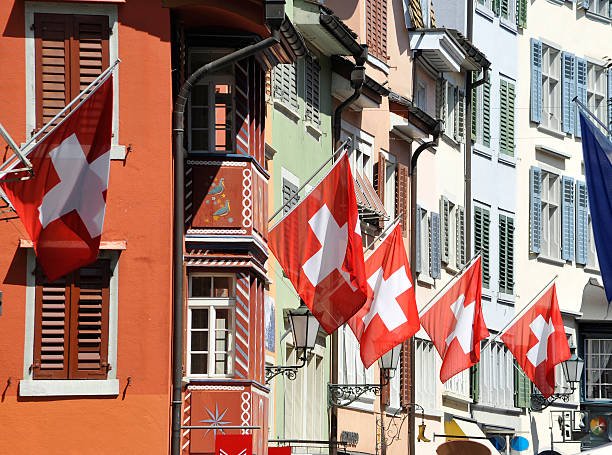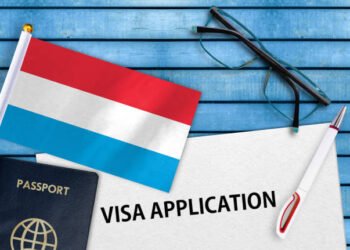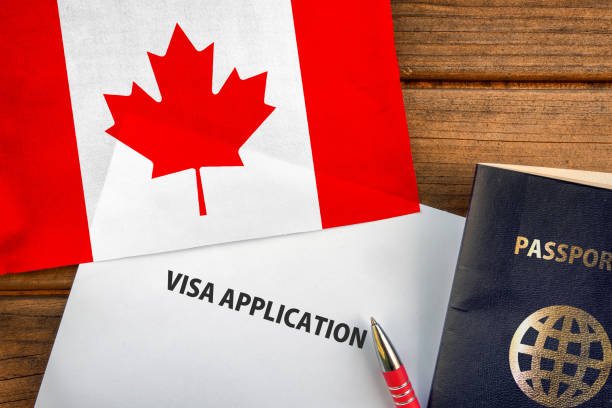Last year, it was reported that, Swiss companies across industries are facing labor shortages, and they’re looking beyond their borders for talent. From skilled IT professionals to unskilled farm and hospitality workers, jobs are being offered with visa sponsorship to the right candidates. If you’ve been searching for a realistic path to live and work in Europe legally, this could be the opportunity you’ve been waiting for. I have provided values in this guide to help you facilitate your dream move to work and live abroad.
Switzerland’s Labor Market & Visa Opportunities
Brief Overview of Switzerland’s Labor Market in 2025
In 2025, Switzerland’s labor market is being shaped by both growth and demographic change. Skilled professionals are being sought in industries like healthcare, IT, and finance, while seasonal and low-skilled roles are being left unfilled in agriculture, hospitality, and construction. Workforce gaps are being widened by an aging population and evolving skill demands, prompting an increased reliance on foreign labor.
Why Switzerland Is Attracting Foreign Workers
High wages, strong labor protections, and a stable economy are being offered to those who relocate to Switzerland. Public services and infrastructure are being maintained at exceptional standards, and multilingual regions are making integration easier for foreign workers. Opportunities for both skilled and unskilled roles are being provided in a country consistently ranked among the best for quality of life.
The Relevance of Visa Sponsorship for Immigrants
For non-EU/EEA nationals, visa sponsorship is being viewed as a gateway to working legally in Switzerland. Without sponsorship, work authorization is rarely granted. Through sponsorship, employers are ensuring legal compliance while allowing foreign workers to be integrated into the Swiss labor system under temporary or long-term residence permits.

Understanding the Swiss Work Visa System
Categories/Types of Work Visas
Several visa types are being issued based on job duration and residency status:
- L Permit: A short-term residence permit that is being granted for employment lasting less than a year.
- B Permit: A renewable residence permit that is being issued for longer-term contracts (usually one year or more).
- G Permit: A cross-border permit that is being used by those who reside in neighboring countries but work in Switzerland.
- C Permit: A settlement permit that is being granted after a number of years of continuous residence (not directly related to employment visas).
Who Is Eligible for Visa Sponsorship
Visa sponsorship is being extended primarily to skilled workers from non-EU/EEA countries who meet specific educational and professional criteria. However, in certain sectors with labor shortages, sponsorship is also being offered for semi- or low-skilled roles. EU/EEA citizens are being given preferential access due to bilateral agreements, but sponsorship is still being used for structured work contracts.
Requirements for Non-EU/EEA Nationals
For non-EU/EEA applicants, work visas are being granted under strict conditions:
- Proof of specialized qualifications must be provided.
- A confirmed job offer from a Swiss employer must be presented.
- Labor market tests (proving no Swiss or EU candidate was available) must be passed.
- Adequate housing and financial support must be guaranteed.
Employer Responsibilities in Sponsoring Visas
Swiss employers are being required to initiate the work visa process on behalf of the foreign employee. Applications are being submitted to cantonal immigration offices and the State Secretariat for Migration (SEM). Employers are being obligated to justify the need for hiring a foreign worker and to comply with Swiss wage and working conditions.
In-Demand Skilled Jobs with Visa Sponsorship
Visa sponsorship is being actively provided for skilled professionals in sectors where domestic labor shortages are being experienced. The following fields are being prioritized in 2025:
A. Information Technology (IT)
Switzerland’s digital infrastructure is being rapidly expanded, leading to high demand for tech professionals.
Roles commonly sponsored include:
- Software developers
- Cybersecurity analysts
- Data engineers and data analysts
- Cloud and DevOps specialists
B. Engineering
Due to ongoing construction, energy, and transport projects, engineering skills are being highly valued.
In-demand specializations:
- Civil engineers
- Mechanical engineers
- Electrical and automation engineers
- Project managers for technical operations
C. Healthcare
An aging population is placing increased demand on the Swiss healthcare system, and foreign healthcare workers are being recruited regularly.
Visa-sponsored roles include:
- Registered nurses
- Doctors and medical specialists
- Elder care assistants and caregivers
- Medical imaging technicians and lab staff
D. Finance & Banking
Switzerland’s status as a global financial hub is being preserved through the recruitment of specialized financial professionals.
High-demand positions:
- Accountants and auditors
- Risk analysts
- Compliance officers
- Investment and private banking advisors
E. Research & Academia
Innovation is being prioritized through government and university-led research, opening doors for global talent.
Positions receiving sponsorship:
- Postdoctoral researchers
- Lab technicians
- University lecturers and assistants
- Scientific project coordinators
Unskilled and Low-Skilled Jobs with Sponsorship Possibilities
Though less common, visa sponsorship for unskilled or low-skilled roles is being offered in sectors facing chronic labor shortages, especially when local or EU labor is unavailable.
A. Hospitality & Tourism
As tourism rebounds in 2025, hospitality roles are being filled by sponsored workers, particularly in alpine resorts and major cities.
Commonly sponsored roles:
- Hotel receptionists
- Housekeeping staff
- Waiters and kitchen assistants
- Bar staff and dishwashers
B. Agriculture & Farming
Seasonal agricultural work is being made available to foreign workers through structured contracts and temporary permits.
Examples of jobs:
- Fruit and vegetable pickers
- Farm laborers
- Vineyard assistants
- Greenhouse workers
C. Construction & Maintenance
Ongoing infrastructure development has resulted in demand for manual labor, where domestic interest is low.
Visa-sponsored jobs include:
- General construction workers
- Road maintenance crew
- Building cleaners
- Basic electrical and plumbing assistants
Absolutely! Here’s the continuation and completion of your blog post, written in the same style and structure with passive voice and appropriate headings:
D. Domestic Work
As Swiss families increasingly rely on external help for household responsibilities, domestic workers are being sponsored in certain cases through private employment contracts.
Common roles being filled:
- Nannies and child caregivers
- Housekeepers and cleaning staff
- Eldercare aides for in-home support
Though fewer in number, sponsorships in this sector are being facilitated especially where live-in arrangements are provided and compliance with labor law is ensured.
E. Logistics & Warehousing
The expansion of e-commerce and industrial supply chains is creating new demand for low-skilled logistics workers. While automation is being introduced, human labor remains essential in many areas.
Jobs being sponsored include:
- Warehouse packers and loaders
- Forklift operators
- Delivery and transport drivers
Sponsorships in this sector are being granted when local staffing shortages persist and safety certifications are fulfilled.
Where to Find Sponsored Jobs in Switzerland
Visa-sponsored job opportunities are not always advertised openly, so strategic searching is being recommended. Below are the most reliable sources:
A. Top Job Portals
Jobs with sponsorship options are being listed on:
- jobs.ch
- Indeed.ch
- Glassdoor Switzerland
Advanced filters and keywords such as “visa sponsorship” or “relocation support” are being used to refine searches.
B. Recruitment Agencies Specializing in Immigrant Labor
Agencies are being employed by companies to fill roles where local interest is lacking. Some agencies working with immigrant labor include:
- Adecco Switzerland
- Michael Page
- Manpower Group
- Global Hire Switzerland
Registration with these agencies is often required, and assistance with the visa process is being provided by the employer through them.
C. Company Career Pages Offering Sponsorship
Large corporations with international hiring policies are consistently offering sponsorship for skilled roles. Career pages should be checked directly for:
- Nestlé
- Novartis
- Roche
- UBS
- Swiss Re
These organizations are known to support relocation and legal processes for high-demand positions.
D. Swiss Government Job Boards and Canton-Level Listings
Official portals such as the Swiss Federal Job Portal and canton-specific job boards are being maintained for regulated listings. While sponsorship is less frequent here, public sector roles or regional labor initiatives can be found.
Some Application Tips for Immigrants
A. How to Write a Swiss-Style CV and Cover Letter
Swiss employers expect professionalism and structure in applications. A Swiss-style CV is being formatted as:
- No more than two pages
- Chronological layout, starting with the most recent role
- Including a professional photo (still common in Switzerland)
- Focus on achievements and measurable results
Cover letters are being kept concise (1 page), and are tailored to each specific role.
B. Importance of Language Skills
Although many Swiss professionals speak English, local language skills are being preferred or required in:
- German-speaking cantons (Zurich, Bern, Basel)
- French-speaking cantons (Geneva, Vaud)
- Italian-speaking canton (Ticino)
Basic language proficiency is being viewed favorably and helps with integration, communication, and job retention.
C. How to Highlight Willingness to Relocate
Employers are being reassured when candidates:
- Mention relocation flexibility in the cover letter
- State readiness to adapt to Swiss workplace culture
- Express long-term interest in working and living in Switzerland
D. Certifications and Document Translation
Foreign qualifications are being required to be recognized by Swiss authorities in many professions. Documents must be:
- Translated officially into German, French, or Italian
- Verified through services like Swiss ENIC or the Red Cross for healthcare jobs
- Properly notarized or legalized when needed
Life in Switzerland as a Foreign Worker
A. Cost of Living vs. Salary
Switzerland is known for its high cost of living, but this is often offset by generous salaries. Basic expenses (rent, insurance, transport) are being balanced by:
- Social benefits
- Employer subsidies (in some sectors)
- Free or subsidized healthcare (for residents)
B. Work Culture and Legal Rights
Work-life balance is being valued in Switzerland. Foreign workers are protected by:
- Regulated working hours (typically 40–44 per week)
- Paid vacation (minimum 4 weeks annually)
- Clear contract terms and employment law enforcement
Unions and labor protections are being offered across most industries.
C. Integration Support
To ease transition, the following are being provided in many cantons:
- Language courses (often subsidized or free)
- Integration programs for new residents
- Community support groups and foreign worker associations
- Guidance for housing, schooling, and legal rights

Conclusion
Switzerland continues to open its doors selectively but steadily to international talent in both skilled and unskilled sectors. As labor shortages persist in 2025, more visa-sponsored roles are being created for those who meet the qualifications, demonstrate commitment, and are ready to contribute.
Whether you’re a nurse from the Philippines, a tech developer from India, or a kitchen assistant from Morocco, your path to Switzerland may be closer than you think.
Ready to explore the opportunity?
Start your search, prepare your documents, and apply with confidence.
👉 Have questions about working in Switzerland or want to share your own journey? Drop a comment below or share this post with someone who needs it.


















